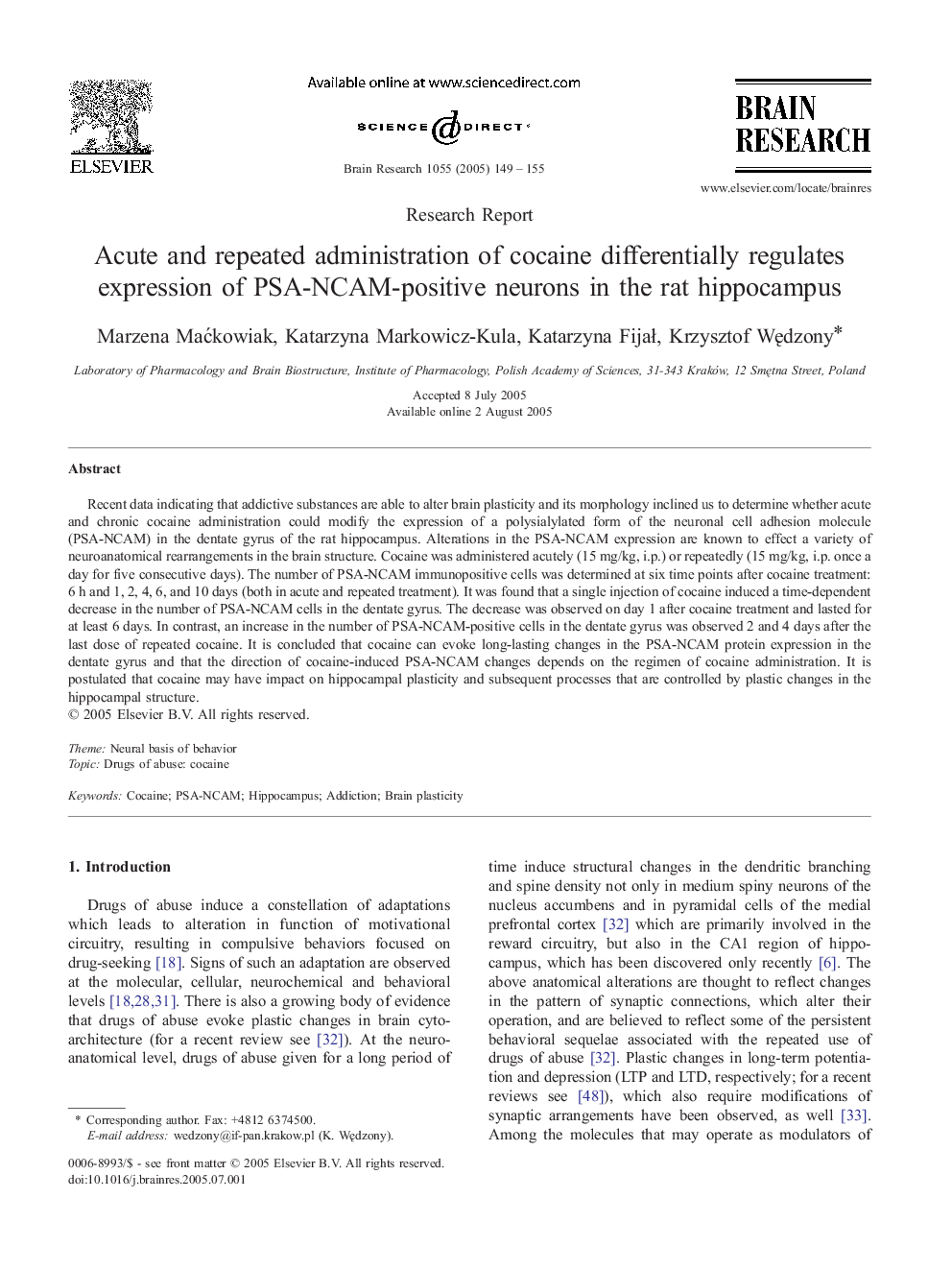| Article ID | Journal | Published Year | Pages | File Type |
|---|---|---|---|---|
| 9416088 | Brain Research | 2005 | 7 Pages |
Abstract
Recent data indicating that addictive substances are able to alter brain plasticity and its morphology inclined us to determine whether acute and chronic cocaine administration could modify the expression of a polysialylated form of the neuronal cell adhesion molecule (PSA-NCAM) in the dentate gyrus of the rat hippocampus. Alterations in the PSA-NCAM expression are known to effect a variety of neuroanatomical rearrangements in the brain structure. Cocaine was administered acutely (15 mg/kg, i.p.) or repeatedly (15 mg/kg, i.p. once a day for five consecutive days). The number of PSA-NCAM immunopositive cells was determined at six time points after cocaine treatment: 6 h and 1, 2, 4, 6, and 10 days (both in acute and repeated treatment). It was found that a single injection of cocaine induced a time-dependent decrease in the number of PSA-NCAM cells in the dentate gyrus. The decrease was observed on day 1 after cocaine treatment and lasted for at least 6 days. In contrast, an increase in the number of PSA-NCAM-positive cells in the dentate gyrus was observed 2 and 4 days after the last dose of repeated cocaine. It is concluded that cocaine can evoke long-lasting changes in the PSA-NCAM protein expression in the dentate gyrus and that the direction of cocaine-induced PSA-NCAM changes depends on the regimen of cocaine administration. It is postulated that cocaine may have impact on hippocampal plasticity and subsequent processes that are controlled by plastic changes in the hippocampal structure.
Keywords
Related Topics
Life Sciences
Neuroscience
Neuroscience (General)
Authors
Marzena MaÄkowiak, Katarzyna Markowicz-Kula, Katarzyna FijaÅ, Krzysztof WÄdzony,
